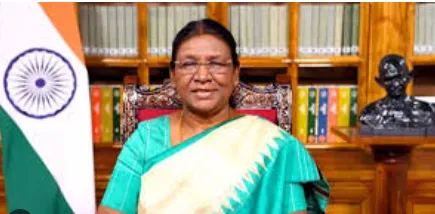

New Delhi, February 3: On the eve of Holi, President Droupadi Murmu sent her warm greetings to citizens across India and abroad. In a message issued by the President's Secretariat, she expressed her heartfelt wishes, saying, “On this joyous occasion of Holi, I extend my sincere greetings and best wishes to all Indians, both in India and overseas.
Holi is a festival of happiness and celebration that promotes social harmony. It spreads love, hope, and reinforces the spirit of unity within society, symbolising the essence of our diversity.”
She added, “May the vibrant colours of Holi fill everyone’s life with joy, and together, may we work towards building a developed and prosperous nation.”
The much-anticipated festival of Holi is being celebrated with fervour across the country, with people indulging in colourful festivities and joyful gatherings. The atmosphere is electric, with music, dance, and traditional customs marking the occasion. In iconic locations like Mathura and Vrindavan, renowned for their grand Holi celebrations, devotees have already begun participating in the age-old rituals, including the popular Lathmar Holi.
Known as the Spring Festival, Holi heralds the arrival of spring and the harvest season. Rooted in Hindu mythology, it signifies the victory of good over evil. The festival begins withHolika Dahan, a bonfire symbolising the destruction of evil, followed by a special Puja to ward off negative energies.
In mythology, the festival’s origins are linked to the tale of Demon King Hiranyakashyapu, who was angered by his son Prahlad’s devotion to Lord Vishnu. In a bid to kill Prahlad, Hiranyakashyapu ordered his sister Holika to use her powers to destroy him. However, the flames of Holika’s fire consumed her instead, symbolising the triumph of good over evil.